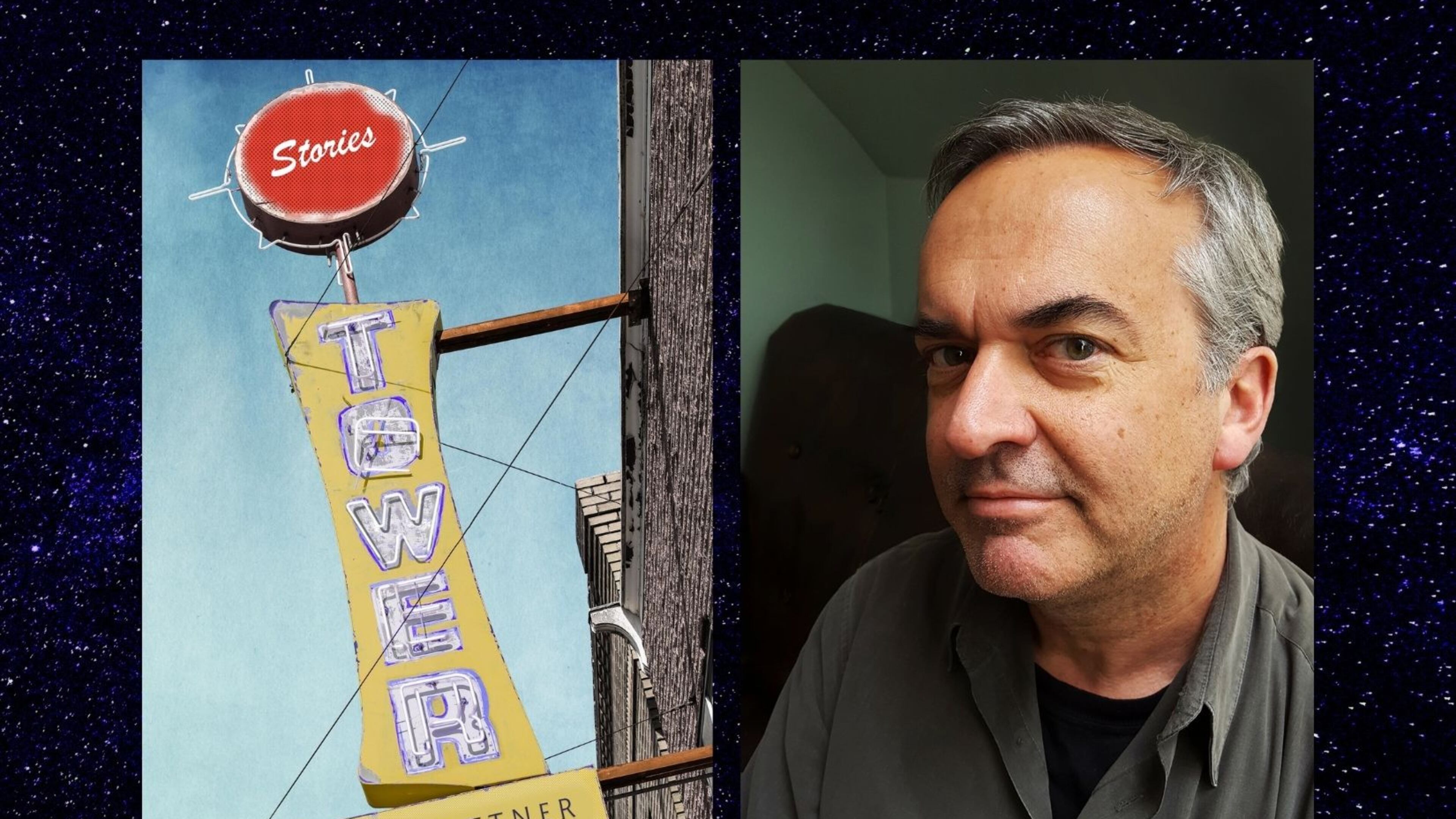Book Review: Characters ponder their life journeys in pensive ‘Tower’

“Tower: Stories” by Andy Plattner is a collection of 14 short stories that ponder the mundane and quiet contemplations of everyday life while exploring the relationships, both past and present, that bind people to each other. Set primarily in the South, Plattner’s vignettes provide intimate glimpses into a series of singular events that, when strung together, paint a larger picture of the melancholic and frequently dissatisfactory state of existing in the modern world.
Rife with liberal political views, sparsely threaded with an undercurrent of Catholicism and conveying a grumbling discontent with the status quo, Plattner’s collection homes in on how the white Southern Democrat is coping in an increasingly conservative country. In “Passport Office,” a husband cajoles his wife into renewing their passports in case they decide to flee the country, proclaiming, “We need to have options.” A long-running daytime soap playing on a TV while they wait at the passport office triggers his solo voyage down memory lane. He combs through the couple’s past — the travels they planned but never embarked upon and their childless status — while waiting for his number to be called to the window.
Plattner does a thoughtful job of dropping his characters into tangible situations that stimulate introspection. By utilizing the anchor of memory and the power of nostalgia, he provides direct access to their innermost thoughts and desires. “Sequence” explores the regret a man wallows in following his wife’s Alzheimer’s diagnosis. Wishing he hadn’t chosen the “safe” fork in the road and instead embraced a sense of adventure, he whacks golf balls across the 14th fairway at night and imagines his neighbors whispering, in the face of his rule breaking: “Leave him alone, let him play. He’s never bothered a soul. Always waiting for others to tell him what to do. Missed out on his own life.”
A number of Plattner’s characters reside on the other side of youth, but two stories are focused on childhood experiences. In the opening tale “Landslide,” a hardworking father who struggles to stay employed brings home a used board game to teach his children about politics. His interest wanes, however, when his disillusionment over his career trajectory claims his focus. In “Hialeah,” a family piles into Dad’s sputtering Eldorado to follow their lucky horse to a racetrack in Miami. When the trip doesn’t go as planned, Dad alters their excursion in a decidedly dramatic way. Both stories, narrated by each man’s son, capture the essence of a child struggling to make sense of the adults in their lives.
Familial bonds form a consistent theme throughout the collection. Not only do they shape Plattner’s characters in unshakable ways, but they convey a sense of disquiet that is highly relatable. Shifting to the adult child’s perspective in “At the Democrat Museum in Madisonville, Kentucky,” he touches on the current pandemic. A man visits his elderly mother, a proud “cradle-to-grave Democrat,” and becomes concerned her lackadaisical attitude about wearing a face mask means she’s too depressed to take care of herself.
Using a different lens to view a similar dynamic, the title story “Tower” concerns a father and daughter who take a detour on the way to an exhibit at the Chicago Art Institute. Inspired by the artist Ai Weiwei, they stop by Trump Tower to flip the bird at the high-rise. Their act of solidarity shakes a layer of depression off the dad, but is it enough to sustain him once he returns to his solitary environment?
Depression is examined from multiple angles. In “Mississippi,” a woman travels from Atlanta to Vicksburg to help her sister with a home-improvement project and muses about how the rest of her family had remained tethered to the hometown; the woman is the only one who got out and built a satisfactory life. While in Vicksburg, she’s reminded of the depression all her family members suffer from and how she stopped her own therapy because “she never wanted to be all squeaky clean and happy ... She worried about erasing who she was.”
Plattner’s characters don’t reach too deep inside of themselves in an effort to evolve. Instead, they float through their present, anchored to the past by their memories, accepting the predicaments that come their way. In “Secret,” a lonely man reconnects with his ex-wife when his son racks up a dangerous gambling debt. But is the night they spend together about rekindling their romance or rooted in his need for human connection?
The thirst for intimacy and a feeling of relevance is touched on numerous times. In “Fortune,” Plattner takes another trip to the horserace track, a place where many of his characters feel a compulsion to spend time. A couple whose relationship is winding down venture on a “breakup trip” to Tropical Park in Miami, where she’s stunned to discover he plans to bet his life savings at the track.
Plattner’s collection spends a significant amount of time submerged in the thoughts and recollections of his characters. His vignettes are far more about examination than change, and the movement in these stories is achieved as much by what’s said as what remains unsaid. Plattner is a master at harnessing subtext, inflating the white space on the page until its purpose becomes clear. As pensive as they are reflective, the stories in “Tower” deliver a compelling and deliberative examination of life viewed through glasses tinted with malcontent. Nevertheless, Plattner’s world is not an unpleasant place to reside.
FICTION
“Tower: Stories”
by Andy Plattner
Mercer University Press
188 pages, $19

